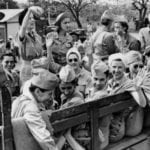 History
History  History
History  Weird Stuff
Weird Stuff 10 Wacky Conspiracy Theories You Will Need to Sit Down For
 Movies and TV
Movies and TV 10 Weird Ways That TV Shows Were Censored
 Our World
Our World 10 Places with Geological Features That Shouldn’t Exist
 Crime
Crime 10 Dark Details of the “Bodies in the Barrels” Murders
 Animals
Animals The Animal Kingdom’s 10 Greatest Dance Moves
 Movies and TV
Movies and TV 10 Box Office Bombs That We Should Have Predicted in 2025
 History
History 10 Extreme Laws That Tried to Engineer Society
 History
History 10 “Modern” Problems with Surprising Historical Analogs
 Health
Health 10 Everyday Activities That Secretly Alter Consciousness
 History
History 10 Dirty Government Secrets Revealed by Declassified Files
 Weird Stuff
Weird Stuff 10 Wacky Conspiracy Theories You Will Need to Sit Down For
 Movies and TV
Movies and TV 10 Weird Ways That TV Shows Were Censored
Who's Behind Listverse?

Jamie Frater
Head Editor
Jamie founded Listverse due to an insatiable desire to share fascinating, obscure, and bizarre facts. He has been a guest speaker on numerous national radio and television stations and is a five time published author.
More About Us Our World
Our World 10 Places with Geological Features That Shouldn’t Exist
 Crime
Crime 10 Dark Details of the “Bodies in the Barrels” Murders
 Animals
Animals The Animal Kingdom’s 10 Greatest Dance Moves
 Movies and TV
Movies and TV 10 Box Office Bombs That We Should Have Predicted in 2025
 History
History 10 Extreme Laws That Tried to Engineer Society
 History
History 10 “Modern” Problems with Surprising Historical Analogs
 Health
Health 10 Everyday Activities That Secretly Alter Consciousness
10 Extraordinary Acts Of Compassion In Wartime
Regular readers of Listverse’s sister site will already be familiar with the story of Henry Tandey, a World War I British soldier who honorably decided not to fire on a wounded enemy soldier—only for that soldier to turn out to be a young Adolf Hitler. But the tale’s twist shouldn’t be allowed to obscure just how noble Tandey’s actions were. Compassion is a quality that is usually hard to come by in times of war. It’s even harder to show it to the enemy. After all, how can you be kind to someone who might actively have tried to kill you? Maybe that’s why compassion is truly a quality we can all admire.
10A Luftwaffe Ace Guided An American Bomber To Safety
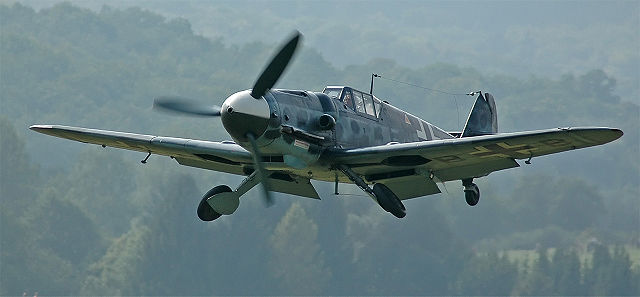
In December 1943, German ace pilot Hanz Stigler had every reason to shoot down the American B-17 bomber in front of him. Enemy forces had already killed his brother early in the war and were now bombing German cities. Not only that, If Stigler took down this particular bomber, he would round out his kill-score and secure the German equivalent of the Medal of Honor.
As Stigler prepared to squeeze the trigger, he thought that it was strange that the bomber wasn’t firing back at him. Going for a closer look, he saw the gunner dead and most of the crew wounded. The plane itself was riddled with bullets and struggling to stay aloft. In his heart, Stigler knew he would be killing men in cold blood. Instead, he opted to do the honorable thing—he signaled to the shocked American pilot and flew with the bomber to prevent it being targeted by anti-aircraft fire.
Stigler escorted the plane until they reached the North Sea, where he broke off and saluted his adversaries one last time. It was not until five decades later that the American pilot, Charles Brown, successfully tracked down the man who saved him. The two men became the best of friends, and as a show of thanks, Brown made Stigler the guest of honor at a reunion he had planned with his crewmen. They showed Stigler a video of their children and grandchildren, people who would not have lived were it not for his act of compassion.
9A Football Fan Saved A Soldier’s Life
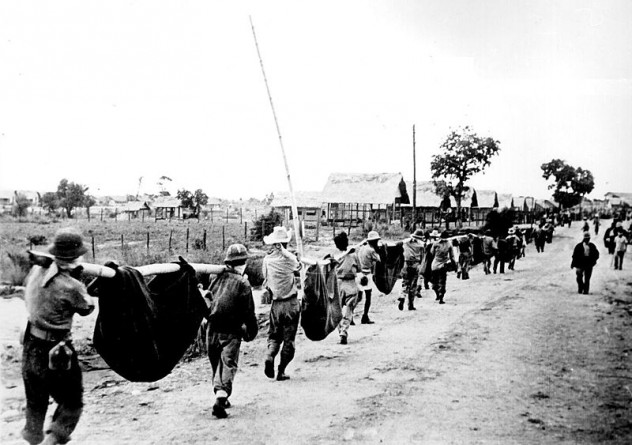
Mario Tonelli was just one of 72,000 men who took part in the infamous 1942 Bataan Death March, in which the Japanese Army forced defeated Filipino-American forces to walk from their former bastion of Bataan to nearby concentration camps. During the days-long march, thousands of prisoners fell by the wayside due to disease or injuries. They also had to endure the brutal treatment of captors who beat, bayoneted, and shot those too weak to trudge on.
Like his comrades, Tonelli was exhausted and on the verge of giving up, when he encountered the unlikeliest source of inspiration. It all started when a Japanese soldier took Tonelli’s class ring from him. Tonelli had been a college football star at Notre Dame and wore that ring with him to the Philippines. Shortly afterwards, a Japanese officer came up to the astonished Tonelli and handed him back his ring. He explained that he had once been a student at the University of Southern California and had watched Tonelli’s Notre Dame decisively beat his team in 1937. He knew how much that ring meant and he just had to return it. That little incident gave Tonelli the hope he needed to survive the rest of the war—which he totally did.
8A German Major Defied The SS

Karl Plagge knew that he was courting death at every turn by protecting Jews from the SS, but he couldn’t care less. An engineer by profession, Plagge joined the Nazi Party but later left after he became disgusted with the group’s racist ideology. After the war broke out, he was assigned to head an army vehicle repair unit in Vilnius, the capital of Lithuania. In a period marked by extermination campaigns conducted by the SS, Plagge moved quickly to save as many Jews as possible.
Plagge conscripted as many Jewish men as he could and with a straight face told the SS that they were all skilled mechanics (they weren’t). Miraculously, he also managed to convince the SS to let them bring their wives and children into the camp, as their presence could boost work production. Inside the camp, he treated his laborers well and often found ways to undermine the ever-watchful SS. One of his most brazen moves came in 1944, when the Germans found themselves being driven back by the Soviets. Plagge knew that the SS would try to kill everyone at the camp before they evacuated, so he told his workers:
“You will be escorted during this evacuation by the SS which, as you know, is an organization devoted to the protection of refugees. Thus, there’s nothing to worry about…”
They got the hint and most managed to escape before the SS arrived the next day. For his actions, Plagge was duly placed among the Righteous Among the Nations in 2004.
7The Kaiser Allowed A British POW To Visit His Mother
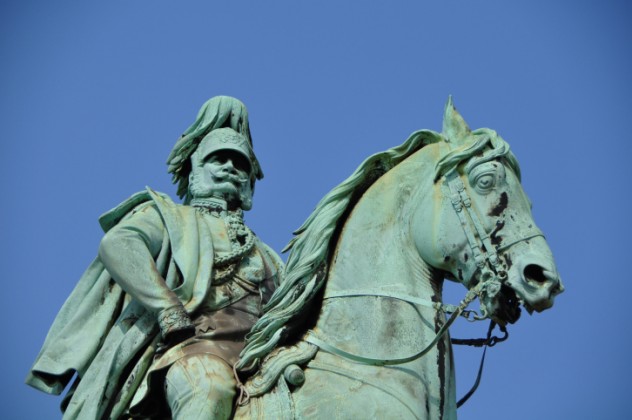
Kaiser Wilhelm II was a man known more for an unpredictable temperament than a gentle demeanor. However, he displayed an unusually high sense of compassion during World War I, when he allowed an imprisoned British soldier to visit his ailing mother back home. Captain Robert Campbell had been captured at the start of the war and was languishing in a prison camp in Germany when he received word that his cancer-stricken mother was dying. Campbell wrote and begged the Kaiser to let him see his mother one last time.
Incredibly, the Kaiser approved his request and gave Campbell permission to leave—on the condition that he return to the prison camp once the visit was over. Campbell stayed with his mother for a week and, like a true officer, kept his end of the bargain and dutifully went back to the prison camp where he was detained until the end of the war. He did once stage a failed escape bid, but only because he thought that it was also his obligation to attempt it.
6Rommel Sipped Tea With British Commandos
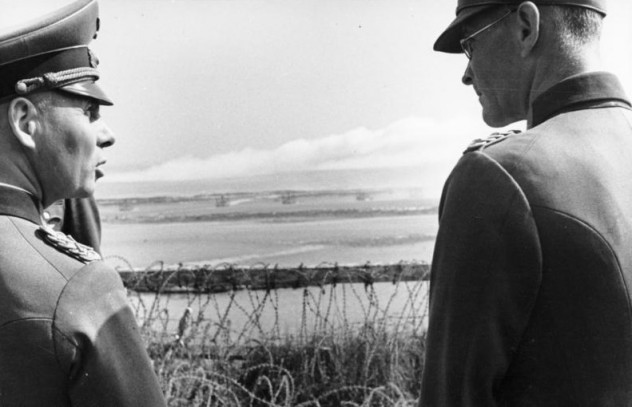
By all accounts German General Erwin Rommel was a professional soldier of the highest caliber, who unfortunately happened to work for the wrong side. Admired by both his own men and the enemy, Rommel refused to follow orders he deemed wrong, such as the execution of enemy commandos caught behind the German lines.
Rommel’s professionalism was illustrated when he spared the lives of two British commandos who were caught off the coast of France in 1944. The two men, Roy Wooldridge and George Lane, had been surveying the mines around the area when they were caught and detained by a German patrol. Although Rommel had every reason to execute them (especially since British commandos had previously tried to assassinate him twice), he once again defied protocol—and even invited Lane to join him for tea and sandwiches. Afterward, he had the pair transferred to an officers’ prison instead of handing them over to the Gestapo or SS (a sure death sentence). Lane later maintained that he wouldn’t be alive today were it not for that timely cup of tea with Rommel.
5The Angel Of Marye Heights
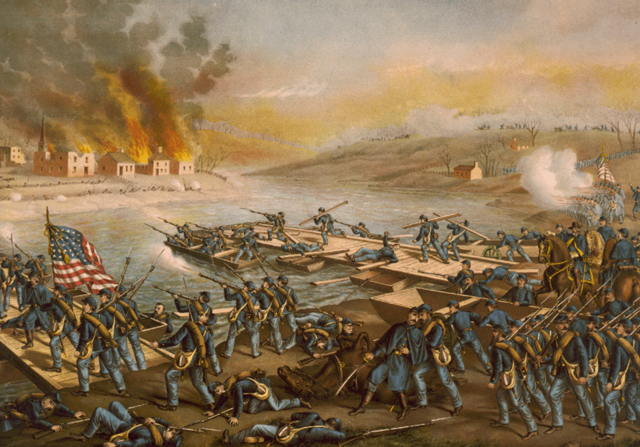
The Battle of Fredericksburg was a one-sided Civil War encounter that left thousands of Union troops dead or wounded after a failed attempt to overrun a firmly-entrenched Confederate army. Wave after wave of Union soldiers were cut down as they tried in vain to smash through a stone wall that protected the Confederates. The ground was soon littered with the wounded, whose cries for help filled the air during lulls in the fighting. Those cries reached the ears of teenage Confederate soldier Richard Kirkland, who begged his general for permission to give water and aid to the injured.
After the general reluctantly agreed, Kirkland gathered several canteens of water and went over the wall. In full view of both Union and Confederate troops, Kirkland gave water and comfort to the wounded soldiers. Firing from both sides stopped and was soon replaced by cheers and applause. Hostilities resumed whenever Kirkland went back over the wall to get more supplies and stopped whenever he returned. The strange spectacle continued well into the night, with Kirkland reaching most of the wounded. For his uncommon act of compassion, both sides dubbed Kirkland “The Angel Of Marye Heights.”
4A U-Boat Sank An Allied Ship, Then Rescued Its Passengers
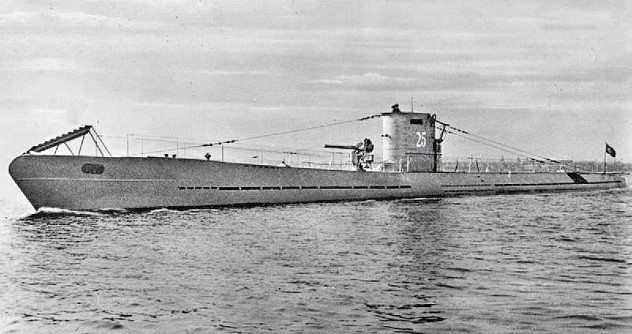
One of the strangest, yet most heart-warming, tales of human compassion in the midst of war came from the infamous Laconia incident in September 1942—an event in which a German U-boat first sank a British transport ship, then rescued the survivors. The commander of U-boat 156, Werner Hartenstein, spotted the ship in the South Atlantic and gave orders to sink it. He was successful—the Laconia was destroyed and more than half of the 2,732 passengers perished along with the ship. Survivors either jumped into lifeboats or into the shark-infested waters.
It was only then that Hartenstein noticed that aside from the British and Poles, there were also Italian POWs as well as women and children among the survivors. He relayed the predicament to his commanding officer, Admiral Karl Donitz, who immediately ordered two nearby U-boats to help rescue the survivors. He also permitted Hartenstein to radio Allied ships for assistance. The poignant moment was cut abruptly short when they were fired at by a passing American plane, which falsely thought the U-boats were only rescuing their own men. Nonetheless, 1,100 lives were saved thanks to the two men’s sense of honor.
3Hitler Helped His Jewish Former Commander
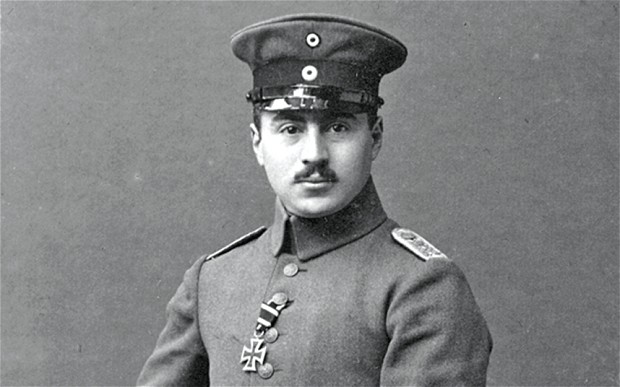
It’s hard to imagine Hitler saving a member of the race he had grown to hate so much. Yet the Fuhrer did what we thought impossible and personally intervened to spare one Jewish life. According to a letter written by SS chief Heinrich Himmler in 1940, Hitler had ordered him and the authorities to spare Ernst Hess from being persecuted or deported. Hess had been Hitler’s commanding officer during the First World War and later worked as a judge before being forced to relinquish his post in light of the Nazis’ rise to power. The order (which was eventually revoked in 1942) and the fact that he was married to a non-Jewish woman saved Hess from going to the death camps. He survived the war and died at the ripe old age of 83. His oldest daughter Ursula said that her father used to describe Hitler as an introvert who didn’t make any friends in their unit. We wonder why.
2A Japanese Pilot Protected A Parachuting Enemy

Probably one of the last things you could expect from a Japanese soldier during the Second World War was mercy. Yet in the closing days of the war, one Japanese pilot broke that stereotype and showed his sense of honor by sparing a defenseless enemy. Corporal Hideichi Kaiho and his fellow pilots had been engaged in a dogfight with American B-29s over Tokyo in 1945. The Japanese managed to down one bomber and force its crew to bail. One of the men, navigator Raymond “Hap” Halloran was parachuting at 3,500 feet when he was spotted by Kaiho and two other Japanese planes. Halloran knew full well the Japanese took no prisoners—so he figured he might at as well wave at the three planes.
Miraculously, two of the planes went away, while the one flown by Kaiho continued to fly around and protect him. Over five decades later, Halloran would meet and thank the man who saved him that day. Kaiho later revealed that his commander encouraged him and his fellow pilots to observe the real Bushido code (the one not corrupted by the Japanese military), which espoused graciousness towards the enemy.
1The Iranian Oscar Schindler
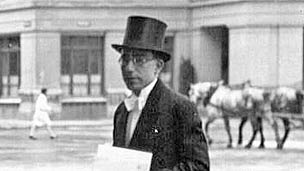
Given the not-so-cordial relations between Israel and Iran today, it’s strange to remember that an Iranian diplomat risked his neck to save thousands of Jews from the Nazis. Abdol-Hosein Sardari Qajar was the wartime Iranian envoy to Paris, where he worked tirelessly to save French Jews with Iranian ancestry from persecution. He cleverly baffled the Nazis with the theory that these Jews were no longer Semitic due to being fully assimilated within the Aryan-Iranian culture. Debates about the theory gave Sardari the time he needed to issue passports left and right.
It was only when non-Iranian Jews came to him for help that Sardari realized the extent of the Nazi extermination program. Nevertheless, he continued to forge hundreds of passport and gave them out to all Jews, regardless of ancestry. When the war was over, Sardari was charged with distributing fake passports but was ultimately pardoned by the Shah of Iran. He later stated that it was his obligation as a diplomat to help his citizens and as a human to help the Jews.
Marc V. is always open for a conversation, so do drop him a line sometime.
